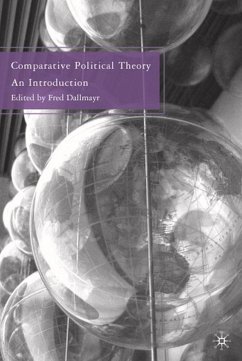
Marxist Ethics within Western Political Theory
A Dialogue with Republicanism, Communitarianism, and Liberalism
Versandkostenfrei!
Versandfertig in 6-10 Tagen
38,99 €
inkl. MwSt.
Weitere Ausgaben:

PAYBACK Punkte
19 °P sammeln!
As widely applied as Marxist theory is today, there remain a host of key western thinkers whose texts are rarely scrutinized through a Marxist lens. In this philosophical analysis of Marx's never-before translated German notes on Machiavelli, Montesquieu, Rousseau, and Lewis Henry Morgan, Norman Fischer points to a strain of Marxist ethics that may only be understood in the context of the great works of Western political theory and philosophy particularly those that emphasize the republican value of public spiritedness, the communitarian value of solidarity, and the liberal values of liberty a...
As widely applied as Marxist theory is today, there remain a host of key western thinkers whose texts are rarely scrutinized through a Marxist lens. In this philosophical analysis of Marx's never-before translated German notes on Machiavelli, Montesquieu, Rousseau, and Lewis Henry Morgan, Norman Fischer points to a strain of Marxist ethics that may only be understood in the context of the great works of Western political theory and philosophy particularly those that emphasize the republican value of public spiritedness, the communitarian value of solidarity, and the liberal values of liberty and equality.












